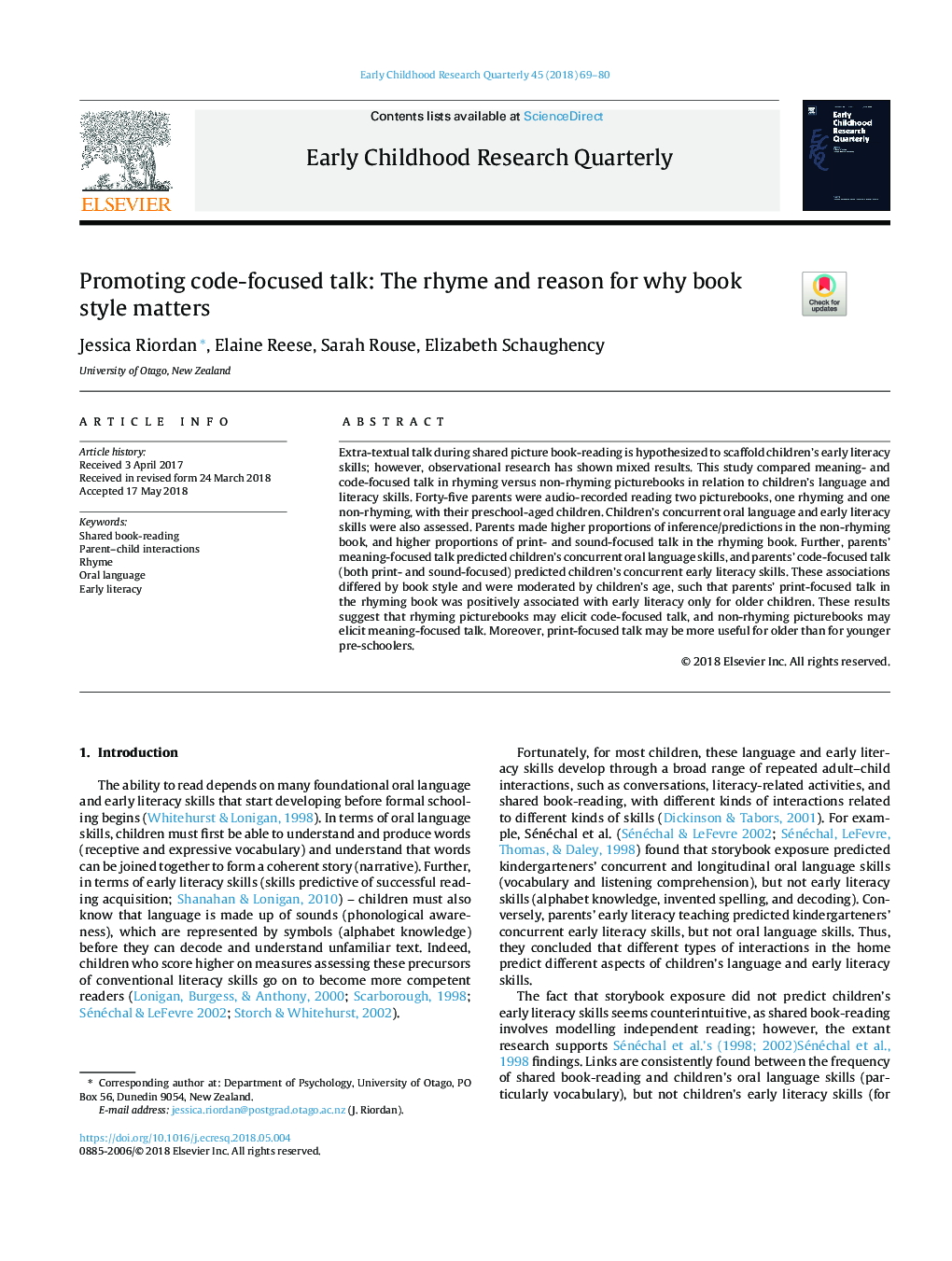| Article ID | Journal | Published Year | Pages | File Type |
|---|---|---|---|---|
| 6840481 | Early Childhood Research Quarterly | 2018 | 12 Pages |
Abstract
Extra-textual talk during shared picture book-reading is hypothesized to scaffold children's early literacy skills; however, observational research has shown mixed results. This study compared meaning- and code-focused talk in rhyming versus non-rhyming picturebooks in relation to children's language and literacy skills. Forty-five parents were audio-recorded reading two picturebooks, one rhyming and one non-rhyming, with their preschool-aged children. Children's concurrent oral language and early literacy skills were also assessed. Parents made higher proportions of inference/predictions in the non-rhyming book, and higher proportions of print- and sound-focused talk in the rhyming book. Further, parents' meaning-focused talk predicted children's concurrent oral language skills, and parents' code-focused talk (both print- and sound-focused) predicted children's concurrent early literacy skills. These associations differed by book style and were moderated by children's age, such that parents' print-focused talk in the rhyming book was positively associated with early literacy only for older children. These results suggest that rhyming picturebooks may elicit code-focused talk, and non-rhyming picturebooks may elicit meaning-focused talk. Moreover, print-focused talk may be more useful for older than for younger pre-schoolers.
Related Topics
Social Sciences and Humanities
Psychology
Applied Psychology
Authors
Jessica Riordan, Elaine Reese, Sarah Rouse, Elizabeth Schaughency,
